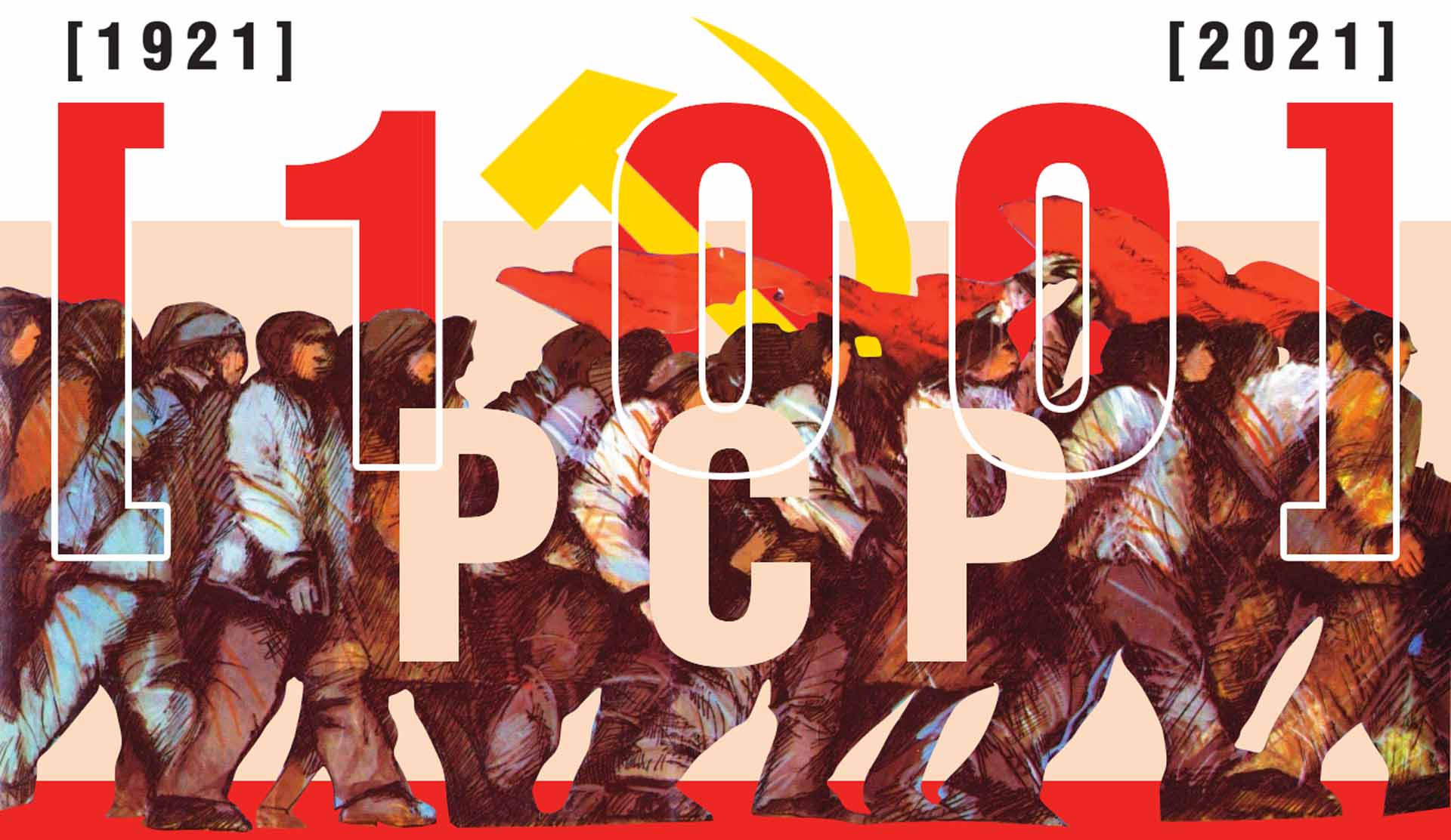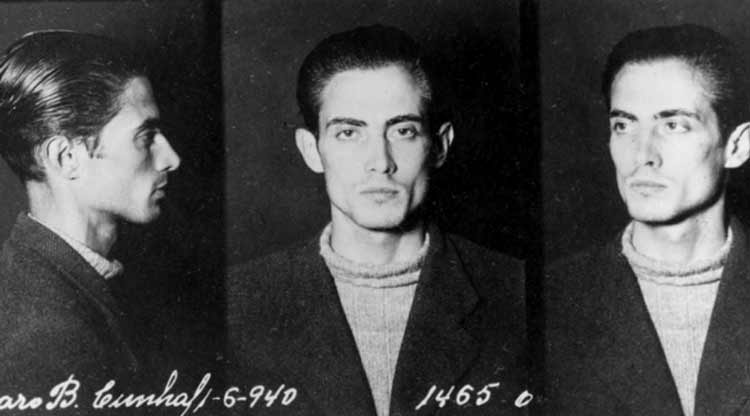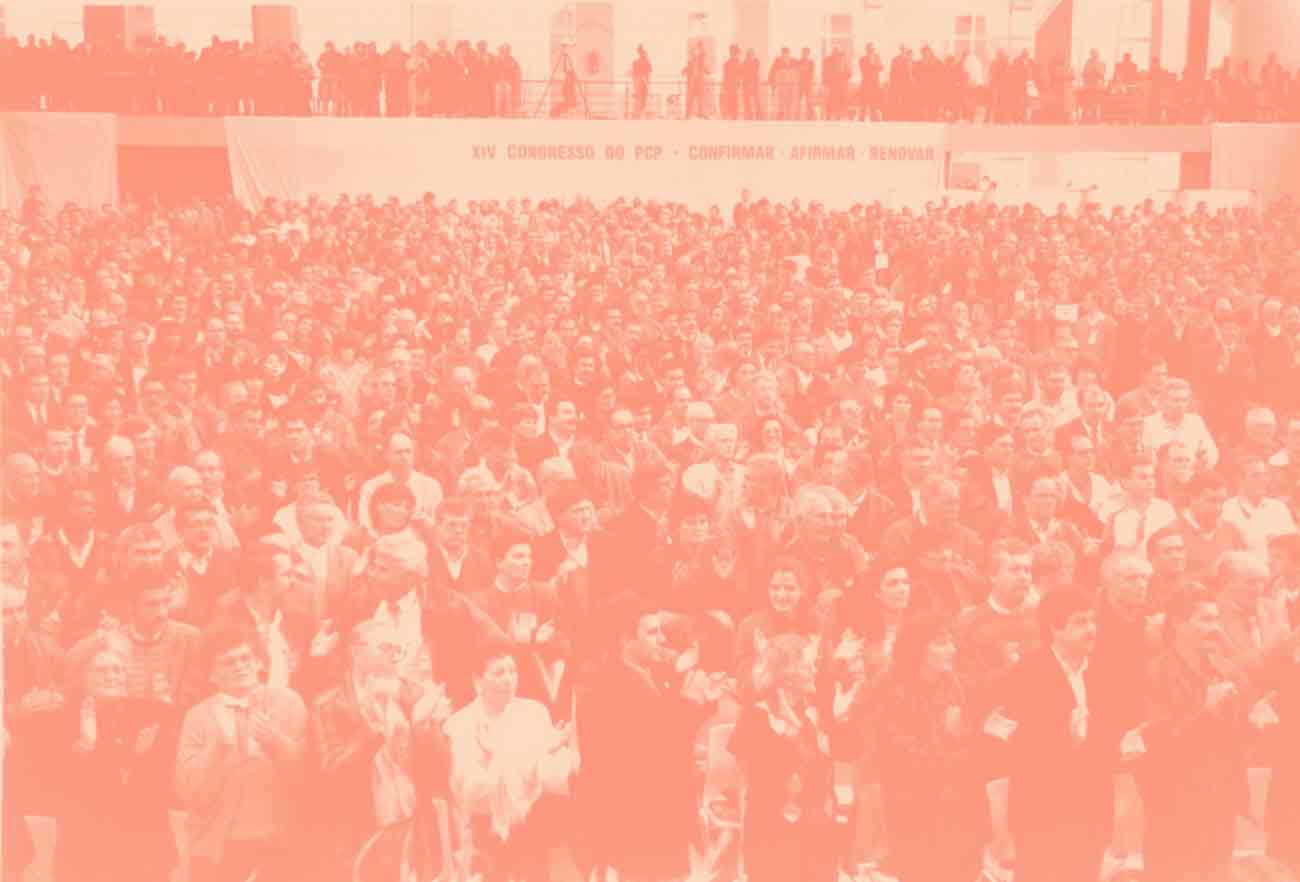
The Portuguese Communist Party (PCP) was founded 100 years ago. A historical organization on the Portuguese political stage, the PCP always took center stage in worker and peasant struggles, as well as anti-fascist resistance. In this article we go over some of the most important moments of the PCP centenary.
Add your voice to ours (*)
The post-war period (after WWI) was fraught with conflict in the context of the fragile First Republic in Portugal. Trade union struggles became more intense and faced off against a growing repression. With the “specter” of the October Revolution ever more unavoidable, Marxist-Leninist organizations started to spring up, and March 6, 1921 saw the foundation of the Portuguese Communist Party.
With the writing on the wall, the First Republic governments lashed out at the PCP. But the worst was still to come. After the 1926 military coup, the recently empowered dictatorship persecuted and arrested militants before closing down all the party headquarters in 1927.
Forced underground, and with just a few dozen members, the Communist Party regrouped to take on the regime, which would soon be headed by António de Oliveira Salazar. In 1929, Bento Gonçalves was elected secretary-general and two years later the Avante! was published for the first time. The newspaper would become a crucial propaganda weapon for the party and one of the finest examples of a clandestine workers’ press around the world.
The dictatorship, which lasted almost fifty years, was a time when the PCP rose to the vanguard in the struggle to defend the working class and the people. Faced with a ferocious persecution, torture and murder, the party never lost its footing, continuously being the fascist government’s most dangerous enemy.
Clench your fists, comrades!
The dictatorship and its apologists, then and later, always tried to promote the idea of a docile Portuguese people who, even if they did not support fascism, they at least were resigned to it. Nothing could be further from the truth. From the trade union movement to the countryside, there were constant demonstrations, strikes and acts of resistance. If on some occasions popular struggles forced concessions and even illusions of democratic overtures, the response was almost always repression at the hands of security agencies, especially the political police PIDE.
The anti-fascist resistance in Portugal invariably had the PCP’s fingerprints all over it. Though a large number of its cadres were arrested, or killed, the party managed to consolidate and extend its activity more and more. Some episodes, like the spectacular escape from the Peniche prison in 1960, struck symbolic blows against fascism and boosted the party’s reputation.
One of those involved in the Peniche prison break was Álvaro Cunhal. He spent a total of 15 years behind bars during the dictatorship, but his role and influence in the PCP grew ever more important, and in 1961 he took over as secretary-general. A law graduate, he was a multi-talented writer and artist, and went on to become the main reference in party history.

Under Cunhal’s leadership, and with support from the socialist bloc, the party ramped up its fight against the dictatorship. In 1965, the secretary-general presented the document “The Path to Victory,” defining the guidelines for the PCP’s struggle and the national democratic revolution program.
“Fascism remains in power by force, and only by force will it be defeated,” Cunhal concluded. As a result, the communists discarded the possibility of an eventual democratic opening coming from the regime itself and embraced all battlefields, including armed struggle, to defeat fascism.
The anti-fascist resistance in Portugal secured an important “ally” in the beginning of the 1960s: the independence struggle in the colonies. With an uncompromising desire to hold on to the old empire, the regime headed by Salazar and later by Marcello Caetano became more and more exhausted.
And then fascism finally fell in Portugal. The April 25, 1974 Carnation Revolution was the reward for decades of heroic sacrifices, a trail of struggle and blood, with an invaluable contribution from the Communist Party.

Our ruby red flag
The period after the Carnation Revolution was filled with bustle and enthusiasm. During the so-called “Ongoing Revolutionary Period” (PREC), the PCP was the engine behind nationalizations, agrarian reform and the approval of the 1976 Constitution, one of the most progressive in the world.
But the counter-revolutionary response did not take long. With support and pressure from the United States and European powers, some parties which had been forced to disguise themselves amidst the revolutionary wave soon showed their true, right-wing colors. The advances were halted and then reverted, while monopolist groups were rebuilt.
In the final stretch of the Cold War, and faced with relentless propaganda, the PCP did not take the easy way out of surrendering principles in the (faint) hope of securing more tolerance from dominant classes. It did not give up on its alliance with Moscow nor on the socialist horizon. The (euro)communist parties which did take the shortcut ended up drifting before finally disappearing.
The Portuguese communists’ political clarity meant going against the grain and assuming the consequences of constant demonization from the media. One example was the party’s opposition to Portugal joining the European Union. Nevertheless, history proved that the PCP’s predictions were correct, as the country’s entrance into the single market ended up solidifying its peripheral condition in a system with a very heavy French and German core.
With the fall of the Soviet Union and the Eastern Bloc, many were quick to forecast “the end of history,” and “the end of the PCP” in Portugal. This in fact has been a prediction as recurring as mistaken from the establishment opinion makers. But as long as there are injustices, as long as there is inequality, as long as there is class struggle, history does not end, nor does the participation of those who are not afraid to take sides.

The Communist Party went through difficult times, it took stock of the political landscape with a critical and self-critical perspective, but it did not stay stuck in time. It quickly regrouped, boosting its political representation on a local and national level, strengthened its trade union work and mass struggles, fighting for rights and always placing the living condition of the majority as its priority.
The current context is as tough as ever, with an almost official anti-communism and constant attacks against the PCP. But the Portuguese communists have shown time and again that they are not easily frightened. As insurmountable as the obstacles may seem, they are no match for the belief that a society of justice and equality, free from exploitation, is as possible as it is achievable. The struggle is the way forward!
The Portuguese Communist Party, in the times we live in, embraces the communist ideal and project, as well as the struggle to build a new society, socialism and communism, as a necessary path for humanity.
It is an ideal worth fighting for and the future will belong to it.
(*) The subsection titles are verses from the song “Avante, camarada!” (“Forward, comrade!”), written by Luis Cília in 1967 and interpreted by Luísa Basto. The song became one of the PCP’s anthems, alongside the International.
Research and text: Ricardo Vaz. Artwork: Kael Abello. Cover illustration: Rogério Ribeiro.



Pingback: April 2024: 50 years since the Carnation Revolution - Utopix